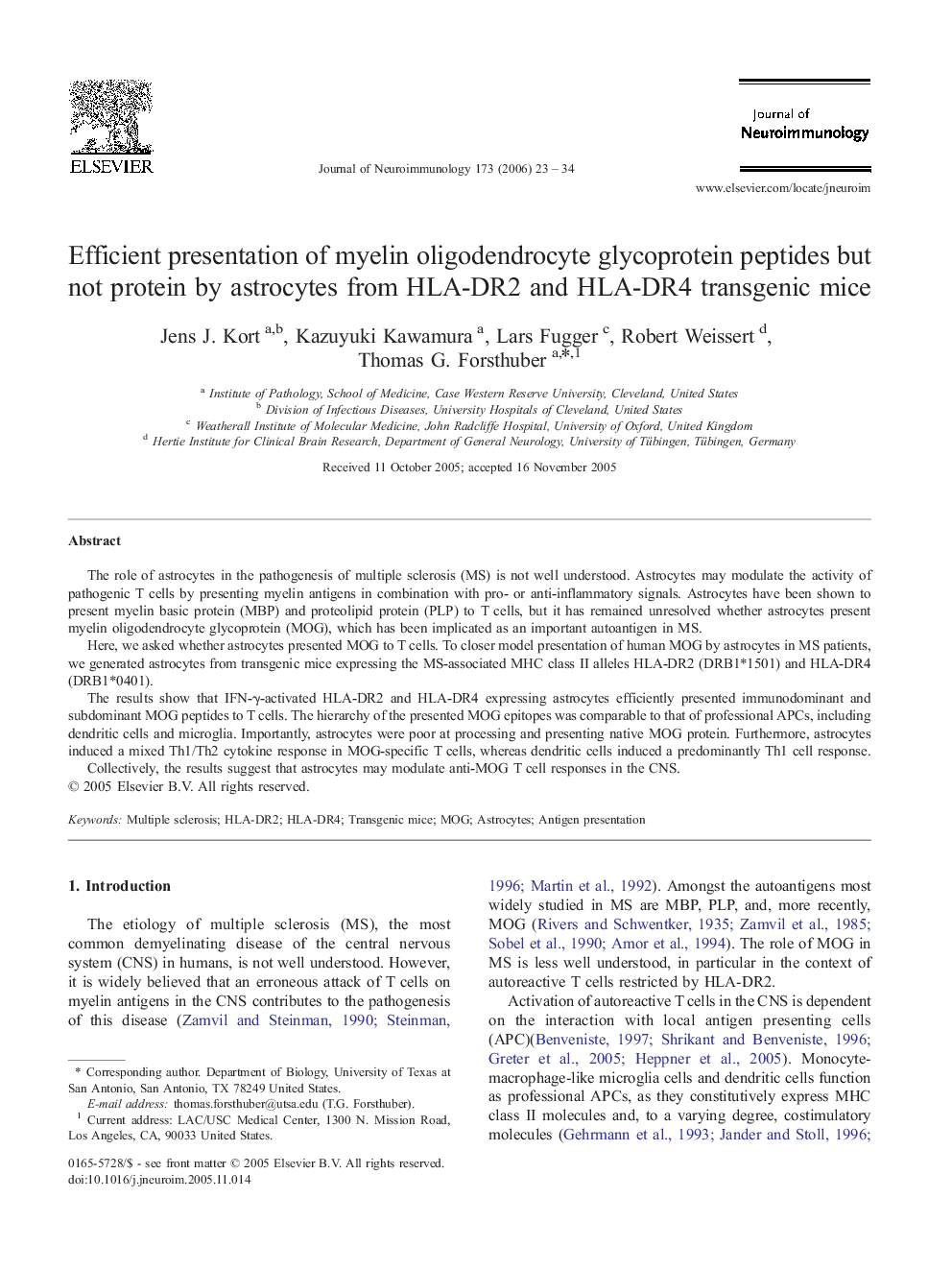| Article ID | Journal | Published Year | Pages | File Type |
|---|---|---|---|---|
| 3065877 | Journal of Neuroimmunology | 2006 | 12 Pages |
The role of astrocytes in the pathogenesis of multiple sclerosis (MS) is not well understood. Astrocytes may modulate the activity of pathogenic T cells by presenting myelin antigens in combination with pro- or anti-inflammatory signals. Astrocytes have been shown to present myelin basic protein (MBP) and proteolipid protein (PLP) to T cells, but it has remained unresolved whether astrocytes present myelin oligodendrocyte glycoprotein (MOG), which has been implicated as an important autoantigen in MS.Here, we asked whether astrocytes presented MOG to T cells. To closer model presentation of human MOG by astrocytes in MS patients, we generated astrocytes from transgenic mice expressing the MS-associated MHC class II alleles HLA-DR2 (DRB1*1501) and HLA-DR4 (DRB1*0401).The results show that IFN-γ-activated HLA-DR2 and HLA-DR4 expressing astrocytes efficiently presented immunodominant and subdominant MOG peptides to T cells. The hierarchy of the presented MOG epitopes was comparable to that of professional APCs, including dendritic cells and microglia. Importantly, astrocytes were poor at processing and presenting native MOG protein. Furthermore, astrocytes induced a mixed Th1/Th2 cytokine response in MOG-specific T cells, whereas dendritic cells induced a predominantly Th1 cell response.Collectively, the results suggest that astrocytes may modulate anti-MOG T cell responses in the CNS.
